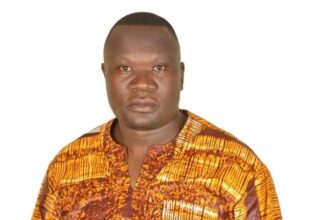By Dr. Ian Clarke
Having worked in the health sector in Uganda for many years I have been able to form a judgment about the quality of Uganda doctors, and I can say that Ugandan doctors are as good as anywhere in the world, which is probably why 50% of them opt to work outside Uganda. The standard of Ugandan nurses is more variable, with some excellent nurses while others are mediocre, but some of this is due to our lack of respect for the nursing profession.
There has been a recent debate about bringing Cuban doctors to supplement Ugandan doctors due to a shortage of specialists. This may be a short-term solution to the problem, but does not address the underlying issues. The first issue is that there are not enough doctors being trained in the various specialties. The second is that many of those who are trained go abroad for better working conditions, and the third issue is that many Ugandan doctors are opting out of clinical practice. Bringing Cubans to fill the gap is akin to trying to fill a leaky bucket when one should first plug the holes
Most Ugandan specialists carry out a three-year post-graduate Masters in Medicine at Makerere College of Health Scinece, with the clinical placement being at Mulago Hospital, where they work as Senior House Officers. But if Mulago did not have the services of these SHOs it would grind to a halt, because it is the SHOs and interns who do most of the work – under the supervision of senior consultants. However, SHOs are not paid, because it is a training post, and consequently have to moonlight in the private sector to make ends meet. There is much hypocrisy coming from government and the public sector about the money-grabbing private sector, because both the senior consultants and the SHOs are the doctors working in the private sector. In effect, the private sector is run by doctors from the public sector. Hence to plug the holes, government could start to improve the number of Ugandan specialists by incentivizing more doctors to join specialist-training programs through paying them for their clinical attachments.
The second reason for a shortage of specialists is that many doctors leave the country for better pay and working conditions. Most Ugandans would prefer to work in their home country, but doctors leave because they are frustrated by the system. It is impossible for a cardio-thoracic surgeon to work in Uganda if most patients don’t have the means to pay him, yet he can’t render services through the public sector because of systemic failures. So his option is to go abroad to work in a country where he is facilitated in terms of equipment and remuneration. The third issue is that the few doctors who remain in clinical practice, especially in the private sector, have increasingly become the target of negative social media, and litigation, so why would they stay in these high pressure jobs when they can get more secure employment running programs for USAID or other aid agencies, where they are not going to be put under the same pressure.
So we have too few doctors being trained in higher specialties and those who are trained are part of the external brain drain, and the internal brain drain, which takes them out of clinical practice. Those dedicated doctors who stay in the system to serve their fellow Ugandans get crucified in the press when there is any adverse outcome, because, as we know in Uganda, we always have to blame someone. It also appears that money may be at the root of making doctors and private hospitals targets for litigation, because it is difficult to get money out of the public sector, but the private sector is assumed to have money.
I am one of those doctors who are no longer in clinical practice, and I have a concern that, if the present trend continues, we will have very few Ugandan doctors left in practice. This is sad, because Ugandan doctors have done so much good, but this is often forgotten in the midst of tearing down our own. In the teaching profession we have seen the complete erosion of deference to, and respect for teachers, so that now it is hard to find a high level dedicated teacher in the profession, and we are reaping the consequences in terms of a poor educational system, unable to compete on a world stage. The same trend has been occurring in the nursing profession, with the general lack of respect undermining nurses in clinical practice, unlike other countries where nurses are highly respected. Is this what is happening to the Ugandan medical profession, such that we have reached the stage we must replace them with Cubans?
Do you have a story in your community or an opinion to share with us: Email us at Submit an Article





